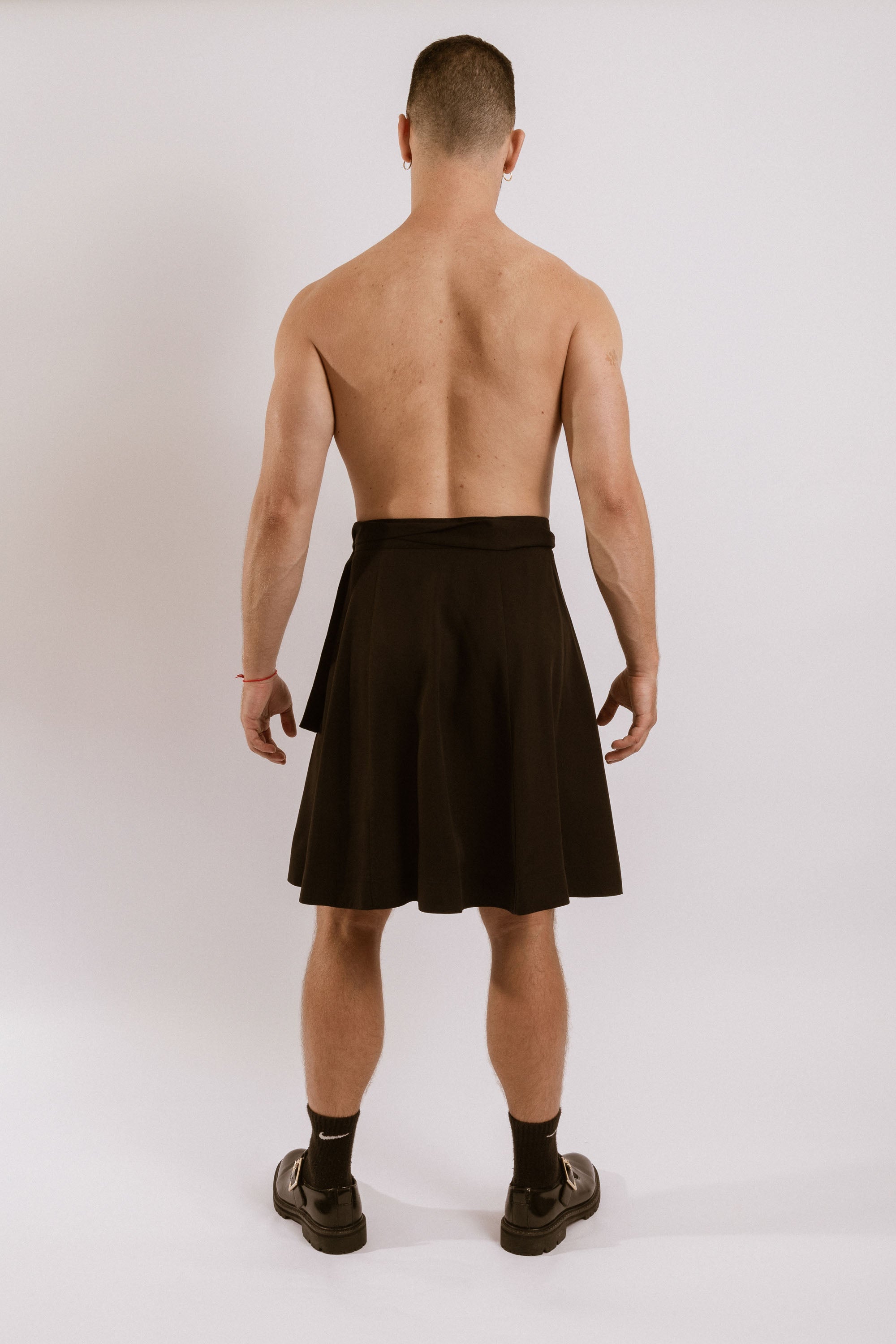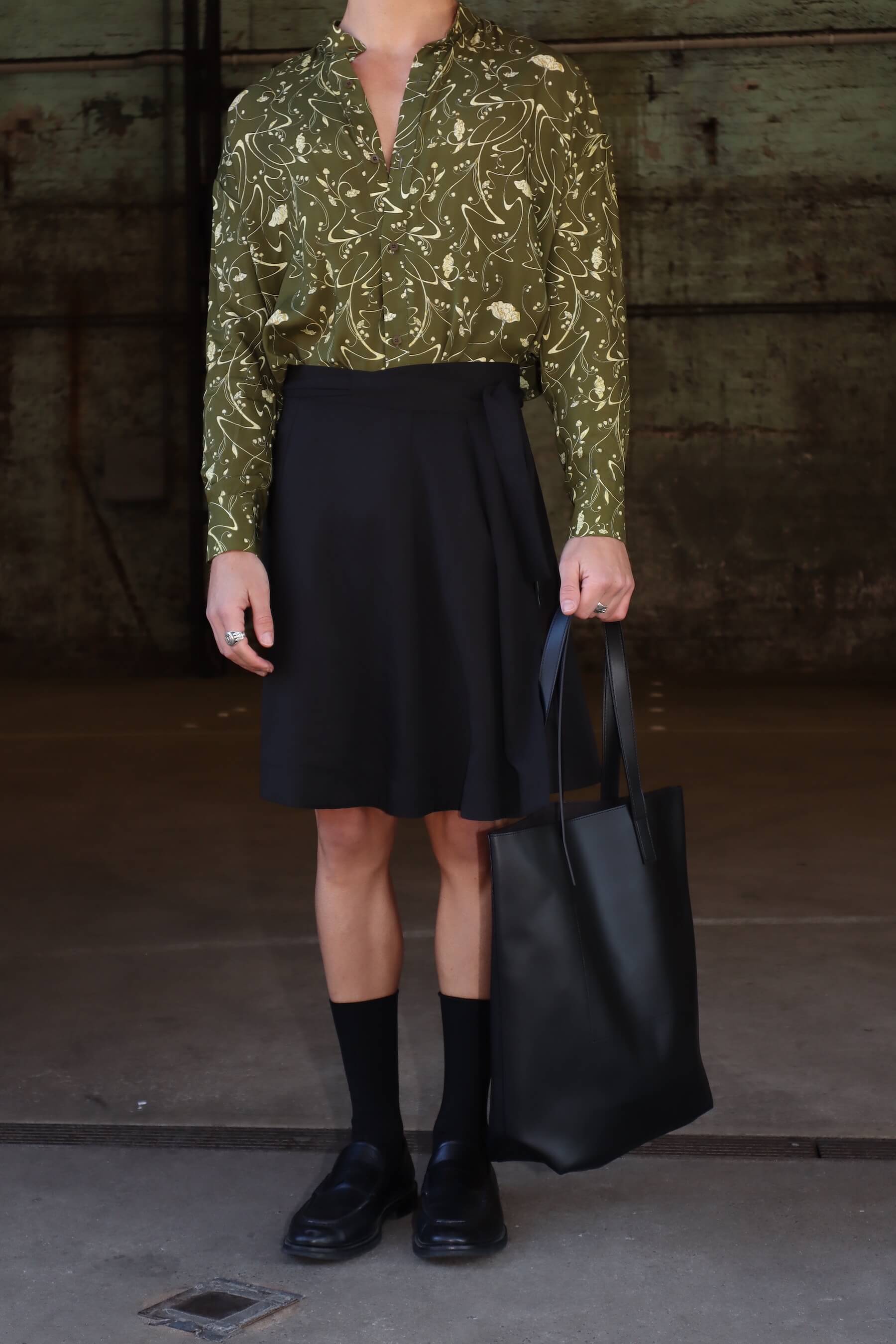Top 5 Sustainability Tips for Fashion
Sustainability in fashion is essential to mitigate the industry's environmental impact. Here are the top five tips for making more eco-friendly fashion choices:
- Choose Sustainable Fabrics
Opting for eco-friendly fabrics significantly reduces environmental impact. Consider natural materials like Tencel, Recycled & Organic Cotton:
Tencel: Made from sustainably sourced wood pulp, Tencel is biodegradable and has a much lower environmental footprint compared to other fabrics. It is produced using an environmentally friendly, closed-loop system which recycles and reuses its water-based solvents, minimising its environmental impact of production.
Recycled Cotton: Utilizing recycled fabrics repurposes existing materials, reducing the demand for virgin material and decreasing waste. Every tonne of recycled cotton saves approximately 765,000 litres of water.
Organic Cotton: Grown without harmful pesticides or synthetic fertilizers, organic cotton reduces soil and water pollution. It also promotes healthier ecosystems and safer working conditions for farmers.
At The Glade, we only use 100% single-fibre (or pure mono-material) fabrics, making the eventual recycling of our garments that much easier. Currently our Tencel fabric is produced & supplied by our partners at Mozartex with a fully traceable supply chain & dyed using low impact dyes and treated wastewater.
Our 100% Recycled Cotton is sourced from New Denim Project and upcycled from post-industrial waste with minimal water and energy consumption & using no dyes or chemicals.
Our zippers are made from 100% GOTS certified organic cotton with recycled brass teeth & stoppers…talk about the most sustainable zippers in the world.
To read more about how we make our Australian sustainable fashion & ethical clothing, check out this page on our sustainability practices
- Support Ethical Clothing Brands
Supporting brands committed to ethical practices is crucial. An easy way to determine Look for certifications & guarantees like:
- Local Production: Minimises carbon footprint & ensures fair wages with safe working conditions.
- Fair Trade: Ensures fair wages and safe working conditions for workers in developing countries.
- GOTS (Global Organic Textile Standard): Certifies that textiles are organic and produced in socially and environmentally responsible ways.
- OEKO TEX: A benchmark for textile safety, certifying the passing of safety tests & the absence of harmful substances.
- B Corp: Indicates that a company meets high standards of social and environmental performance, accountability, and transparency.
By choosing brands with these certifications or markers, you promote ethical production practices and contribute to a more sustainable fashion industry.
As a high end men’s clothing brand championing Australian sustainable fashion, we only produce locally here in Sydney, ensuring our team of expert makers are paid a fair wage and with excellent working conditions.
- Practice Mindful Consumption
Mindful consumption involves making deliberate, thoughtful purchasing decisions:
- Evaluate Need: Before buying, consider if you truly need the item and if it aligns with your personal style and values.
- Quality Over Quantity: Focus on purchasing high-quality items that last longer rather than frequently buying cheap, disposable clothing.
- Avoid Impulse Buys: Resist the urge to make spur-of-the-moment purchases. Instead, plan and prioritize what you really need.
This approach not only reduces waste but also helps build a more intentional and sustainable wardrobe.
- Embrace Second-Hand Fashion
Second-hand fashion is a fantastic way to reduce environmental impact:
- Thrift Shopping: Explore thrift stores for unique, affordable pieces. Buying second-hand reduces the demand for new clothing production and minimizes waste.
- Clothing Swaps: Participate in clothing swaps with friends or community groups. This is a fun way to refresh your wardrobe without contributing to new production.
Embracing second-hand fashion supports a circular economy and decreases the overall carbon footprint of your wardrobe.
- Proper Clothing Care
Extending the lifespan of your garments is key to sustainability:
- Follow Care Instructions: Properly caring for clothes according to the label instructions prevents damage and prolongs their life.
- Wash Responsibly: Wash clothes in cold water, use eco-friendly detergents, and air dry instead of using a dryer to save energy and reduce wear.
- Storage: Store clothes appropriately—fold knitwear to prevent stretching and hang shirts to maintain their shape.
Responsible clothing care not only makes your garments last longer but also reduces waste and the frequency of needing replacements.
Incorporating these sustainability tips into your fashion choices can significantly lower your environmental footprint. Every small change contributes to a more sustainable future, collectively making a big difference in the fashion industry. For more insights and sustainable fashion pieces, visit theglade.com.au





Leave a comment
This site is protected by hCaptcha and the hCaptcha Privacy Policy and Terms of Service apply.